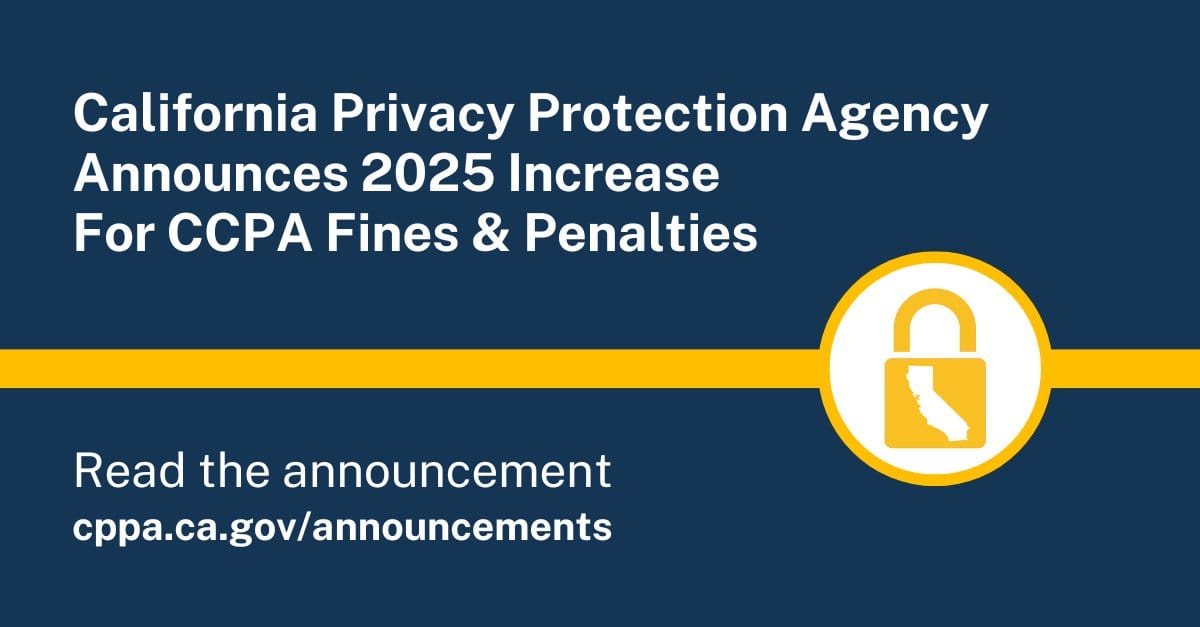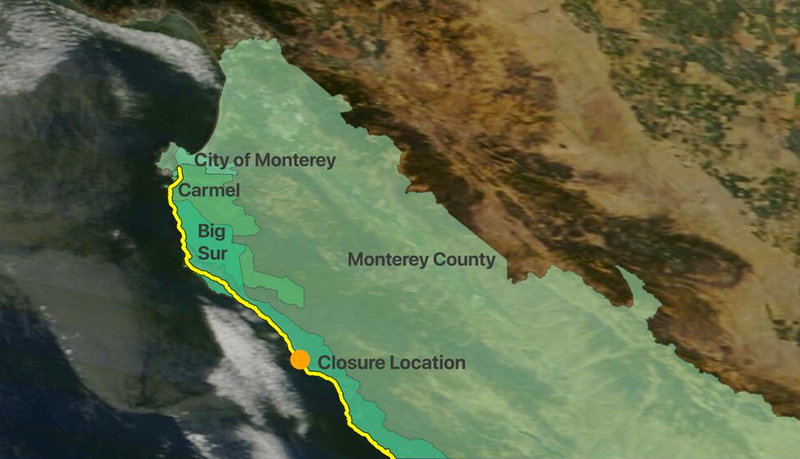Inflation and new penalties to protect minors' data drive CPPA fine hikes in 2025
California’s Privacy Protection Agency has announced 2025 increases in CCPA fines and penalties, raising financial stakes for businesses.

The California Privacy Protection Agency has announced increases to fines and penalties under the California Consumer Privacy Act (CCPA), set to take effect in 2025.
In compliance with the CCPA, the Agency is increasing the monetary damages, administrative fines, & civil penalty amounts for CCPA violations. The income threshold for businesses has also been adjusted. The adjustments are effective 1/1/2025. Read more: https://t.co/wVsawPZZi2 pic.twitter.com/XyMjF2T5b3
— California Privacy Protection Agency (@CalPrivacy) December 17, 2024
These adjustments, which occur every two years in alignment with changes to the California Consumer Price Index (CPI), will raise the financial stakes for businesses that fail to comply with the state’s stringent consumer data protection laws.
Higher Penalties for CCPA Violations
According to the CPPA’s press release, "Beginning in 2025, monetary damages, administrative fines, and civil penalties are being increased for violations of the CCPA." The updated thresholds include:
- Civil penalties for violations involving minors’ data increasing from $7,500 to $7,988 per violation.
- Administrative fines for CCPA violations rising from $2,500 to $2,663 per violation.
- Minimum and maximum monetary damages per consumer per incident increasing from $100–$750 to $107–$799.
The CPPA’s regulations further explain that "a violation of these regulations shall constitute a violation of the CCPA and be subject to the remedies provided for therein" (Article 1, Section 7000). Under Article 9, Section 7302, the agency has the power to initiate probable cause proceedings against businesses that violate the law, ultimately leading to financial penalties.
New Thresholds for Businesses Under CCPA
One significant update affects the annual gross revenue threshold that determines whether a business must comply with the CCPA. As of 2025, companies with annual revenues of at least $26.6 million will be subject to CCPA regulations, an increase from the previous $25 million threshold outlined in Civil Code § 1798.140(d)(1)(A).
The CCPA statute specifies that a business "...alone or in combination, annually buys, receives for commercial purposes, sells, or shares the personal information of 100,000 or more consumers 0r households" must comply with the law.
This means that some businesses that were previously exempt may now be required to comply with CCPA mandates, including providing clear privacy policies, opt-out mechanisms, and timely responses to consumer data requests.
Stronger Protections for Consumers, Especially Minors
A key area of focus for the CPPA remains the protection of minors' personal data.
Under Civil Code § 1798.150(a)(1)(A), "monetary damages range per consumer per incident [will be] not less than $107 and not greater than $799 per consumer per incident or actual damages, whichever is greater." This reinforces the agency’s commitment to ensuring that companies handle children’s data responsibly.
In addition to these fines, the CPPA regulations state that "a business that sells or shares the personal information of consumers shall provide a Notice of Right to Opt-out of Sale/Sharing" (Article 2, Section 7013). Businesses must also obtain verifiable parental consent for consumers under 13, as outlined in Article 6, Sections 7070–7072 of the regulations.
Implications for Businesses and Consumers
The new fine increases reflect California’s continued push to strengthen consumer privacy protections. As the CPPA’s enforcement powers grow, businesses must ensure they are fully compliant with CCPA requirements to avoid substantial financial penalties. The CCPA regulations outline specific steps that businesses must take to ensure compliance, including clear disclosures, timely responses to consumer requests, and adherence to opt-out mechanisms.
For consumers, these changes serve as a reminder of their rights under the CCPA. The CCPA statute grants individuals the ability to request access to their data, correct inaccuracies, and opt out of data sales, among other rights. The CPPA press release encourages individuals to visit privacy.ca.gov for more information on how to exercise these rights.
Looking ahead, businesses should anticipate continued adjustments to CCPA penalties and compliance thresholds as California remains at the forefront of data privacy enforcement. With higher penalties and more stringent requirements, companies operating in the state must stay informed and proactive in their privacy compliance strategies.
Conclusion
The CPPA’s updated regulations and the CCPA statute provide a clear framework for enforcement, reinforcing the state’s commitment to consumer data protection. As privacy laws continue to evolve, both businesses and consumers should remain vigilant about their rights and responsibilities under California’s privacy laws.






